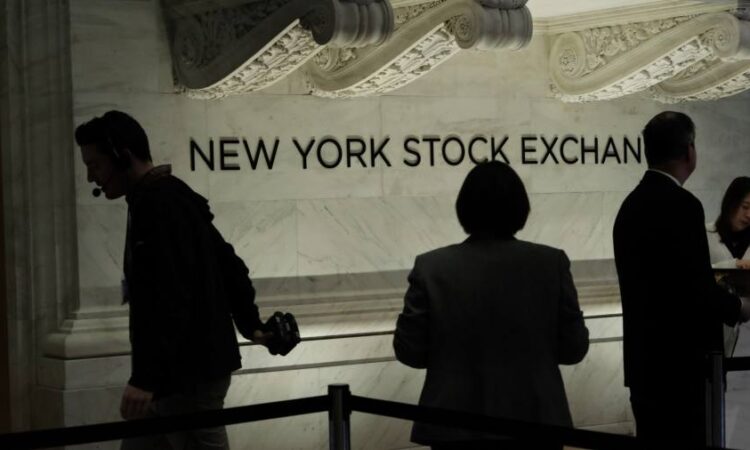
Wall Street stocks fell on Thursday as investors assessed the latest batch of corporate updates and fresh labour market data for clues about the outlook for the world’s biggest economy.
The benchmark S&P 500 index closed 0.9 per cent lower, while the Nasdaq Composite lost 1 per cent. The latter gauge had climbed as much as 1.3 per cent earlier in the session.
Those declines came as tech giant Alphabet extended its losses into a second day, with its shares sliding more than 4 per cent after closing almost 8 per cent lower on Wednesday. The declines followed a glitch in a Google artificial intelligence demonstration this week and reflected broader concerns over competition in the AI arena from Microsoft.
Walt Disney shares finished the day 1.3 per cent lower, but had been higher earlier in the day after activist investor Nelson Peltz called time on his proxy fight against the company. Peltz’s decision came after Disney reported late on Wednesday that it had stemmed losses in its streaming business and posted better than expected quarterly earnings, helping push its shares higher in after-hours trading.
Offering a brighter spot amid the downbeat moves, PepsiCo ticked higher — gaining almost 1 per cent after the snacks and drinks group gave a relatively positive picture of consumer demand and said it wasn’t planning price increases in the second half if inflation slows.
Traders were also analysing data on Thursday that showed higher than expected US jobless claims in the first week of February.
New applications for state unemployment aid, which is a proxy for dismissals, rose to 196,000 for the week to February 4 — higher than the figure of 190,000 forecast by economists polled by Reuters, and above the previous week’s 183,000 applications.
That report came hot on the heels of data last week showing the US economy had added a much higher than anticipated half a million new jobs in December.
Consumer price index data will be scrutinised next week for evidence of a further easing in the rate of inflation. Market participants have been searching for signs about how far and fast the Federal Reserve will continue to raise borrowing costs, after chair Jay Powell warned this week of even higher rates if jobs data stays strong.
In government debt markets, the two-year Treasury yield — which moves in line with interest rate expectations — added 0.03 percentage points to 4.48 per cent, reflecting a drop in price, while the 10-year yield rose by the same magnitude to 3.67 per cent. Earlier in Thursday’s session, the inversion between the two yields hit its deepest level since 1981.
The dip below zero has historically been perceived as a harbinger of recession.
In Europe, the regional Stoxx 600 share gauge hit its highest level in nearly a year as the slowing pace of price growth in Germany reassured investors that the European Central Bank would not have to raise rates by more than expected.
German inflation slowed to 9.2 per cent in January from a year earlier, below economists’ expectations, a report on Thursday showed. The Stoxx closed 0.6 per cent higher.
Economists said the number eased the need for the ECB to raise rates quickly to combat rising inflation.
“Some of the fear that they’ll have to push rates up a long way has come out of the market,” said Neil Shearing, group chief economist at Capital Economics.
“However, the path towards substantially lower inflation rates won’t be easy,” warned Carsten Brzeski, global head of macroeconomics at ING. “For the time being, it is lower energy prices and hence base effects, as well as government interventions that are pushing down headline inflation, not a broader-based disinflationary process.”






